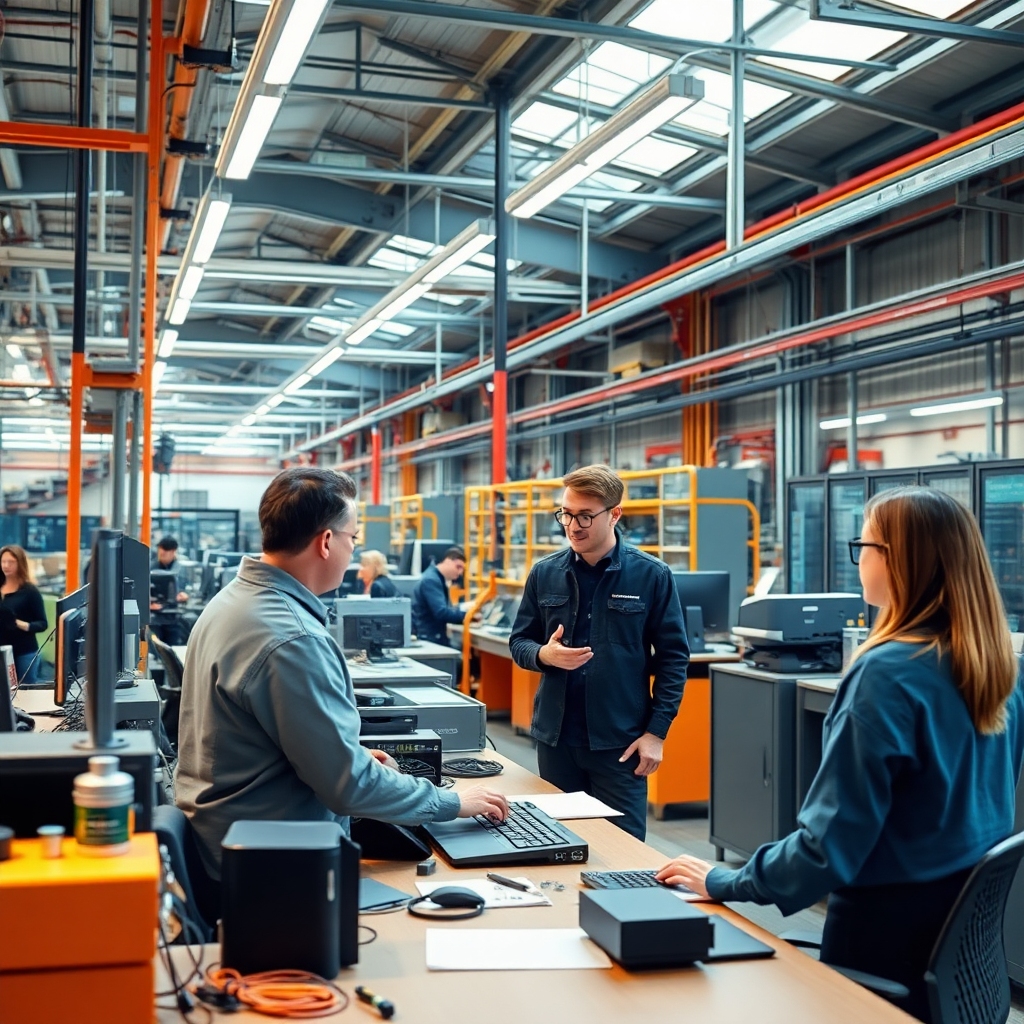ZimbsTech – Innovative Software Solutions for Modern Businesses

Revolutionizing Manufacturing Supply Chains: How AI Transforms ERP Systems
we will explore how AI enhances manufacturing supply chain ERP systems, the challenges it addresses, and the future it promises.
The manufacturing supply chain is the backbone of industrial production, connecting raw materials, production processes, and final delivery to customers. However, this intricate network often faces challenges like fluctuating demand, inventory inefficiencies, and supply chain disruptions. With the advent of Artificial Intelligence (AI), the landscape of manufacturing supply chains is experiencing a revolutionary transformation, especially in the realm of ERP (Enterprise Resource Planning) systems.
Current Challenges in Manufacturing Supply Chains
Manufacturing supply chains are complex, involving multiple stakeholders, real-time decision-making, and global coordination. Some persistent challenges include:
- Demand Volatility: Fluctuating customer demand creates overproduction or shortages.
- Inventory Inefficiencies: Managing stock levels without incurring wastage or delays is a balancing act.
- Operational Inefficiencies: Manual processes are prone to delays and errors, affecting overall productivity.
- Supply Chain Disruptions: Global crises, natural disasters, or geopolitical events can cripple supply chains.
Traditional ERP systems, while robust, often lack the agility and predictive capabilities to manage these challenges effectively.

Role of AI in ERP Systems
AI bridges the gap between traditional ERP limitations and modern supply chain demands. By integrating machine learning, predictive analytics, and automation, AI transforms ERP systems into intelligent platforms that anticipate and adapt to changes in real-time.
These AI-driven ERP systems not only optimize operations but also provide actionable insights that empower manufacturers to make informed decisions swiftly.
Key Applications of AI in Manufacturing Supply Chain ERP
1. Demand Forecasting
AI algorithms analyze historical sales data, market trends, and external factors to accurately predict future demand. This enables manufacturers to adjust production schedules and minimize overproduction or stockouts.
2. Inventory Management
With AI, ERP systems can automate stock replenishment, monitor inventory levels in real-time, and minimize excess stock or shortages, leading to cost savings and smoother operations.
3. Supplier Relationship Management
AI evaluates supplier performance, pricing, and delivery timelines, ensuring manufacturers work with reliable partners. Automated procurement processes further streamline the supply chain.
4. Predictive Maintenance
AI-powered sensors monitor equipment health, predict potential failures, and schedule maintenance before breakdowns occur. This reduces downtime and maintains uninterrupted production.
5. Logistics Optimization
AI enhances route planning, optimizes delivery schedules, and tracks shipments in real-time, ensuring faster and more efficient product distribution.
6. Quality Control
AI systems analyze production data in real-time, identifying defects or anomalies early in the process. This ensures consistent product quality and reduces waste.
Benefits of AI-Driven ERP Systems
The integration of AI into ERP systems delivers numerous advantages, including:
- Enhanced Decision-Making: Actionable insights from AI enable proactive strategies.
- Cost Efficiency: Optimized operations reduce wastage and costs.
- Agility: Manufacturers can quickly adapt to changes in demand or disruptions.
- Resilience: AI strengthens the supply chain against potential risks, ensuring continuity.
The Future of AI in Manufacturing ERP
As AI technologies evolve, their impact on manufacturing ERP systems will deepen. Emerging trends include:
- IoT Integration: Connected devices will provide real-time data, further enhancing AI capabilities.
- Autonomous Supply Chains: AI will power self-regulating systems capable of making decisions without human intervention.
- Hyper-Automation: Combining AI with other technologies like RPA (Robotic Process Automation) will fully automate supply chain operations.
Businesses must embrace these advancements to remain competitive and future-proof their operations.

Conclusion
AI is reshaping the manufacturing supply chain landscape, transforming ERP systems into intelligent, adaptive platforms. From demand forecasting to predictive maintenance, the applications of AI are vast and impactful, offering unmatched efficiency, accuracy, and resilience.
Are you ready to elevate your manufacturing ERP system with AI? At ZimbsTech, we specialize in integrating cutting-edge AI solutions tailored to your business needs. Contact us today to stay ahead in the ever-evolving manufacturing landscape.
